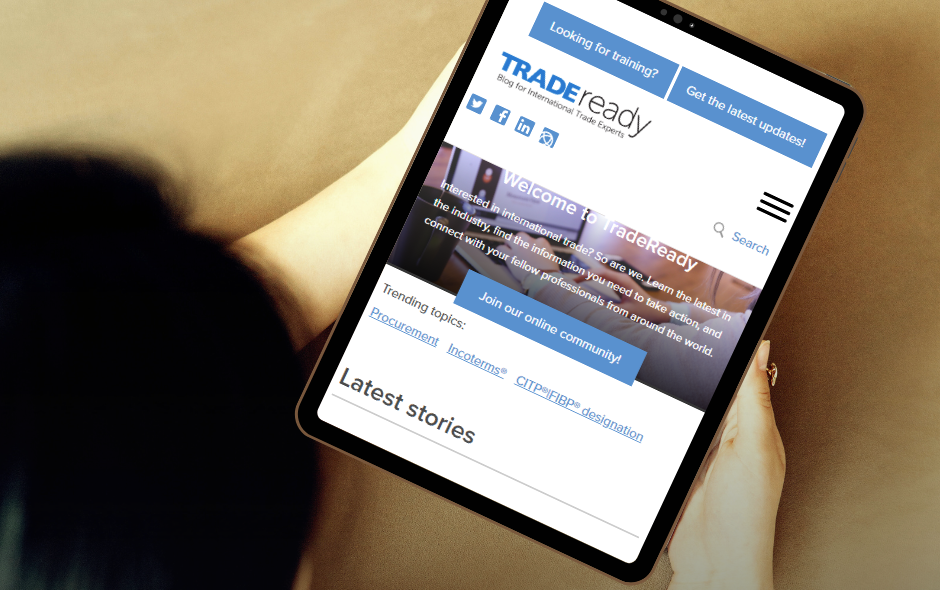 Thinking “relationships,” rather than just “transactions,” is essential for successfully navigating global business today. While it’s often tempting to think you can fly into another market, get the deal done, the contract signed and fly out again, this is contrary to the way business is conducted in many parts of the world.
Thinking “relationships,” rather than just “transactions,” is essential for successfully navigating global business today. While it’s often tempting to think you can fly into another market, get the deal done, the contract signed and fly out again, this is contrary to the way business is conducted in many parts of the world.
For example, as one Texas-based CEO shared with me recently, when talking about his business dealings in Myanmar:
You will likely need to invest in relationships over a period of several years before expecting anything to be signed, sealed or delivered.
So, what are the basics you need to help build trust, inspire respect and create long-lasting global business relationships with your trade partners around the world? These 8 tips will set you on the right path:
1. Language & Business Cards
Research the official language of the country and do not assume it is English. Although businesspeople may speak English, it is best to hire your own interpreter so that you communicate your message clearly, as well as understand side conversations. Translate your business card into the local language, a detail appreciated by locals.
2. Belief Systems & Ethnicity
Having an awareness of the belief systems and ethnicity is crucial for attire, communication, physical space and distance, gender roles and protocol. For example, in Malaysia with diverse ethnic groups, it is important to respect Muslim, Bumiputra, Chinese and Indian customs when communicating, dining and socializing.
3. Names and titles
Pronouncing names correctly is important worldwide, and using honorifics and titles for denoting hierarchy, gender or age varies by culture. It is more common to use titles and formalities in many countries than it is in the U.S. and Australia.
4. Gender Roles
There is no hard and fast rule on how women are treated in the world of work. The extent to which a female professional may experience challenges due to gender varies, as indicated by the Global Gender Gap Report. One example is how greetings vary across cultures. A safe rule, especially for men, is to wait to see if a woman offers her hand first, before offering yours for a handshake.
5. Time
Cultural differences about time impact relationship building between the U.S. and Asia, South America and the Middle East. There are big differences between monochronic and polychronic people, and companies lose countless weeks and millions of dollars because they fail to understand the variations within, as well as between, cultures.
6. Cultural Taboos
These vary depending on the country. Some common U.S. gestures, such as crossing legs when sitting, placing feet on a desk or table, and indicating direction with a foot or shoe are considered rude and uncouth in Asia. Other taboo gestures include pointing with the index finger in several countries, like the Czech Republic.
7. Greetings
Global greetings vary, and tend to be more informal in the U.S. and Australia. However, worldwide, formality is more common.
Nothing will ruin an introduction more quickly than defaulting to a first name without an invitation.
For example, it is impolite to default to a first name in Myanmar, where people are respectfully addressed with all four names and a title such as: Daw Aung San Suu Kyi.
8. Business Attire
Wardrobe varies based on country, company culture, and seasonal weather. For example, in Japan, in hot, humid months, a professional business suit is still expected. To avoid offending your counterpart, wear modest, professional business dress for initial meetings, official events, and contract signings. In less formal situations and countries, light-colored, open collar shirts and dark slacks for men may be acceptable.
Be cautious about adopting local fashions, like Myanmar’s longhi. Women in African, Asian, and Middle Eastern countries are expected to dress modestly, covering arms, legs above the knees and décolleté.
At the very least, remember that without a firm foundation of respect and trust, business transactions are like houses built on sand. While in the West it may be tempting to think of relationships as transactional, in the sense that you nurture them only after a deal has been struck, the opposite is true in many parts of the world.
Be relationship-focused throughout: before, during and after your interactions overseas.
What other areas can global trade professionals focus on as they work towards becoming more relationship-focused?







disqus comments